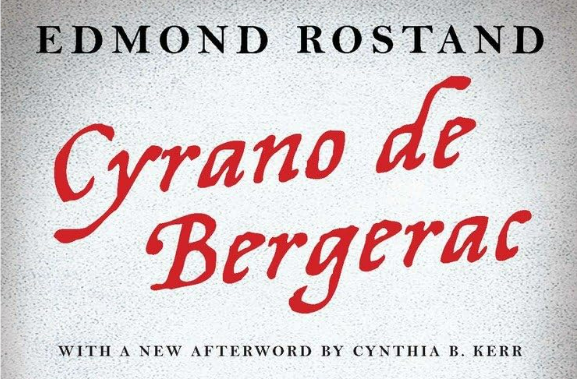Scene 3. V.
byScene 3. V. presents a pivotal moment in Cyrano de Bergerac, where Christian, having grown weary of relying on Cyrano’s poetic genius, makes a bold decision about how he wishes to express his love for Roxane. He rejects Cyrano’s continued help in composing love letters, claiming he wants to speak from his own heart. Although Cyrano is initially doubtful that Christian can express himself with the same eloquence, he respects his decision, stepping back to give him the space to try. This shift marks a key moment in the play, highlighting Christian’s desire to be authentic and genuine in his approach to Roxane.
As Roxane leaves the house of her friend Clomire, the mood shifts to one of quiet intimacy. The evening atmosphere is calm, and the setting is ideal for a personal conversation. Christian, now determined to speak without the help of Cyrano’s carefully crafted words, takes a deep breath and begins to speak directly to Roxane. His love confession is heartfelt and earnest, a sharp contrast to the previously polished words he had been forced to use. This marks a significant point in the narrative, showing that Christian now wishes to be true to himself, seeking to connect with Roxane on a deeper, more personal level.
The themes of love, authenticity, and self-expression are central to this scene, as Christian’s bold move to speak his feelings without Cyrano’s intervention exposes the complexity of his emotions. His struggle to communicate his love, despite lacking the linguistic finesse of Cyrano, adds a layer of vulnerability to his character. This moment underscores the idea that love is not just about grand gestures or beautifully spoken words, but also about being genuine and speaking from the heart. While Cyrano’s eloquence had been a tool for Christian, the real power now lies in Christian’s willingness to express his feelings in his own imperfect way.
This shift in the narrative also reflects the ongoing tension between the characters, particularly the dynamic between Christian and Cyrano. Cyrano, known for his verbal dexterity, understands the power of words but is also aware that true connection comes from emotional authenticity. Christian’s decision to step into the role of the lover without relying on Cyrano’s talents reveals his inner growth. It is a moment of self-discovery and courage, showing that while eloquence may impress, it is the raw sincerity of one’s emotions that truly resonates.
The scene also emphasizes the broader theme of personal identity and how each character grapples with the tension between who they are and who they wish to be. Christian, throughout the play, has struggled with the disparity between his outward appearance and his inner self. His reliance on Cyrano’s words reflected his insecurity and inability to express his feelings freely. However, in this moment, he takes a brave step toward self-realization by rejecting the external help and choosing to speak from his own heart, despite the risk of failing to impress Roxane.
Roxane, in turn, is a pivotal character in this exchange. She has been captivated by the words that Christian has expressed in the past, not knowing they were Cyrano’s. However, her ability to perceive the shift in Christian’s approach marks her growing awareness of the differences between genuine emotion and artifice. This scene sets the stage for her evolving feelings, as she begins to see Christian for who he truly is, beyond the poetic lines and gestures. The complexity of their relationship deepens, and the stakes of their emotional connection grow higher.
The use of the evening setting also plays a symbolic role in the scene. As the night falls, there is a sense of quiet introspection, and the shadows cast by the dimming light serve as a metaphor for the inner turmoil both Christian and Cyrano experience. The darkness of the evening contrasts with the clarity that comes with speaking the truth, reinforcing the idea that love is most profound when it is expressed honestly, without pretense. The contrast between the shadowy setting and the clarity of Christian’s emotions further highlights the power of authenticity.
This scene is a powerful turning point in the play, as it underscores the emotional journey of both Christian and Cyrano. It sets up the next phase of their respective arcs, where love and identity will continue to intertwine, leading to further moments of sacrifice, realization, and emotional complexity. The choice to speak authentically, rather than relying on artifice, becomes a defining moment for both characters, showcasing the importance of personal growth and the power of love that is expressed without barriers.
In conclusion, Scene 3. V. illustrates the transformative nature of love and communication. Christian’s decision to speak for himself marks a significant shift in his character development, moving from reliance on Cyrano’s words to a more genuine expression of emotion. This moment highlights the tension between eloquence and sincerity, emphasizing that true connection arises from authenticity. The scene also sets the stage for deeper emotional revelations, as both Christian and Roxane face the complexities of their feelings in a more honest and vulnerable light.


